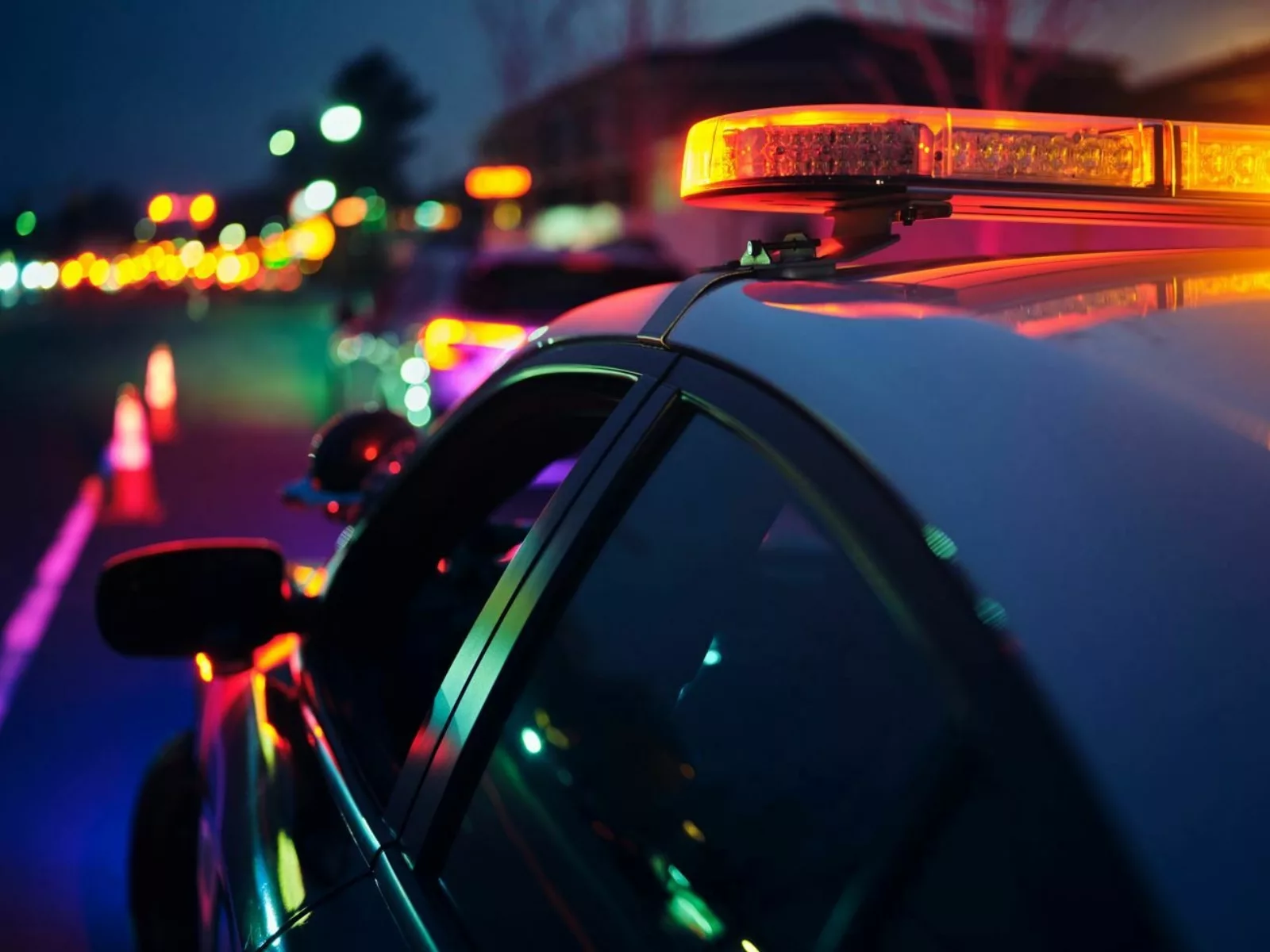When Leonard Burnett was incarcerated at a state prison in Dallas, Pennsylvania, he looked forward to the visits he’d receive from his elderly mother, wife, and daughter a few times a year. They lived in the Philadelphia area, three hours away from the prison, so they took a bus chartered for prisoners’ loved ones to get there. It left at dawn, arriving at the prison at the start of visitation, which gave Burnett a full day with his family. “It was an acknowledgement you might be gone but not forgotten,” he said.
When the COVID-19 pandemic hit in March, the Pennsylvania Department of Corrections (DOC) suspended visitation as a precaution to slow the spread of the disease. At the time, Burnett had transferred to a prison closer to Philadelphia, but with the introduction of new lockdown measures that confined him to his cell for the majority of the day, his family seemed farther away than ever.
As the virus spread across the state, shuttering schools and businesses, prisons were put onto lockdown. But even that couldn’t halt the spread of the pandemic. Since the beginning of the pandemic, more than 7,000 people in Pennsylvania prisons — including staff and incarcerated people — have tested positive for the virus and more than 70 have died.
Amid these dire conditions, however, prisons began to test out new ways of keeping people behind bars connected with their families.
In mid-March, the corrections department implemented free video visits for prisoners via Zoom. For Burnett, those visits were a lifeline in a time of increasing uncertainty about the severity of the disease and whether his family had been affected. “I looked forward to it,” he said. “Just having your loved ones there for you, knowing that they’re alright and likewise knowing we’re alright, it does something for you psychologically.”
Burnett was released one month ago. But the visits also gave him a rare glimpse into life in the free world that prison visits had not afforded him. Speaking to his son on Zoom, he was able to see his son’s new apartment for the first time. “He was showing me, and I was like ‘Wow technology has certainly changed,’ ” Burnett remembered.
A Watchdog and a Lifeline
Creating connections like the ones Burnett forged with his family has been a focal point of the Pennsylvania Prison Society, an organization whose work centers on oversight, re-entry, and maintaining communications between prisoners with their loved ones. Dating back to 1787, the society is nearly as old as America itself. It is one of the few organizations in the country that has the authority to freely enter prisons and county jails to ensure the well-being of its roughly 76,000 incarcerated people, an authority that’s guaranteed through legislation. The organization estimates that in a pandemic-free year, its volunteers, known as official visitors, make roughly 3,000 visits to meet with prisoners and assess conditions inside the facilities.
Along with acting as a watchdog, the society runs a bus service — the same one used by Burnett’s family — that transports families to their loved ones’ prisons. Since that was shut down earlier this year because of COVID-19, it has shifted its focus to cultivating digital connections by offering technical support for people navigating the Zoom platform, which Burnett’s family also took advantage of after being alerted to it by the DOC.
Just having your loved ones there for you, knowing that they’re alright and likewise knowing we’re alright, it does something for you psychologically.Leonard Burnett
And as the state’s prisoners sit in lockdowns with limited telephone access, the Prison Society’s far-reaching privileges within the state’s correctional system have become crucial for keeping people informed about their family and friends behind bars. With support from Arnold Ventures, the organization’s hundreds of years of work took on a newfound sense of urgency.
“During COVID it’s been especially important because [prisons and jails] are even more closed off than before,” said Julie James, Arnold Ventures’ vice president of criminal justice. “There’s greater demand for earphones and video calls and limited capacity to do that while trying to maintain social distancing and all the rest. It’s really hard.”
Keeping Families Informed
Throughout the pandemic, families have relied on media reports and releases from prison officials, which are not always reliable and consistent, to glean information in between phone calls and letters from their loved one. Under the Zoom program in Pennsylvania, prisoners can make up to five calls each month, with a limit of two per week. Previously, people hoping to digitally connect with their friends and family had to pay for video calls and travel to designated kiosks throughout the state to make them.
Though the Zoom calls have made video visits more accessible, the technology is not without its challenges. When the program first started, the Prison Society received dozens of calls each month from people in need of help navigating the system, estimated Kirstin Cornnell, director of social services for the organization. “I feel like our phones were ringing off the hook when it first happened,” she said.
With the recent spike in new COVID-19 cases in Pennsylvania prisons, she said there’s been an increase in calls from family members asking about their loved ones’ well-being. Sometimes, they may not have heard from a prisoner because their facility is in lockdown, but in some cases, there’s not an easily accessible explanation. In those, Prison Society staff members will investigate.
By shifting its means of creating connections in the pandemic, Cornnell said she has learned valuable lessons she hopes both the Prison Society and the corrections department will keep in place long after COVID-19 has disappeared. “You realize the impact that incarceration has once families are more cut off,” she said. “I think hopefully we recognize the value of visiting and we need to commit to removing as many barriers as possible to keeping people in communication with one another.”
Pandemic in Prisons
Even before the pandemic, Arnold Ventures had been working with grantees like the Pennsylvania Prison Society to leverage oversight in a way that improves conditions for people behind bars and overall works toward increasing the transparency, accessibility, and accountability of prisons. That mission has become all the more critical since the start of the pandemic, when experts warned that correctional facilities — devoid of social distancing, cleaning supplies, and hygiene products — would become infection hotspots.
To date, more than 329,000 people incarcerated in state and federal prisons have tested positive for COVID-19 and more than 2,000 people have died, according to data compiled by the criminal justice publication The Marshall Project.
The impact of COVID-19 on jail and prison populations has sparked renewed calls for reforms throughout the criminal justice system. In October, the National Commission on COVID-19 and Criminal Justice, launched in July 2020 by the Council on Criminal Justice and supported in part by Arnold Ventures, released a report outlining steps officials should take to stop the spread of COVID-19 in incarcerative facilities.
The commission, composed of 14 members working in the criminal justice system and health experts, issued recommendations that included diverting people charged with low level offenses from prisons and jails through community supervision programs, providing prisoners with proper protective equipment and cleaning supplies, and putting together a plan to notify prisoners and their loved ones of infections. The commission also recommended that prisoners should be given low cost or free phone calls to communicate with their friends and family to protect their “rights, humanity, dignity, and well-being.” And in December, the commission issued an update to its reports, and recommended that inmates and correctional staff be considered top priorities for receiving the COVID-19 vaccine.
“The COVID-19 outbreaks in correctional facilities continue to represent some of the largest reported coronavirus clusters in the country,” said Commission Director Thomas Abt. “It’s critical that we safely reduce the density of incarcerated populations and take other proven measures to better protect the health of people behind bars and the staff who oversee them.”
Also in October, the National Academy of Sciences, Engineering, and Medicine released a similar report, which was also supported by Arnold Ventures. Its findings proved what many feared at the start of the pandemic: Cumulative case rates among incarcerated people were nearly five times higher than in the general population and death rates were three times higher. The academy recommended that officials take steps to decarcerate correctional facilities, which included encouraging law enforcement officers to give citations instead of make arrests, eliminating cash bail, and releasing prisoners who are vulnerable due to their age or a medical condition.
Advocates have called for mass releases of prisoners since the beginning of the pandemic. Results have been mixed.
Pennsylvania’s corrections department, which has recorded more than 6,000 cases, released 5,500 prisoners between March and May (it usually averages 3,000 for that time period). But hundreds more prisoners who expected to be freed under an executive order by Gov. Tom Wolfe aimed at reducing the prison population were denied relief due to the strict requirements that blocked their release, according to a Spotlight PA report.
In neighboring New Jersey, where at least 52 prisoners have died from the disease, Gov. Phil Murphy signed a bill in April that released 800 prisoners early. The passage of legislation in November meant that prisoners with a year or less left on their sentences could have their time reduced by as many as eight months for every month spent behind bars during the pandemic. This has resulted in the release of more than 2,000 prisoners.
Texas, on the other hand, has been criticized for its handling of COVID-19 in correctional facilities. At least 231 prisoners and staff have died at the state’s prisons and jails. Twenty-one had served more than 90 percent of their sentence at the time of their deaths, and 58 percent of people who died in prisons from COVID were eligible for parole, according to a November report by the Lyndon B. Johnson School of Public Affairs at the University of Texas at Austin, which was supported by Arnold Ventures.
“Texas has an extraordinary number of elderly and medically vulnerable people locked up, and of course they are at greatest risk from COVID,” said Michele Deitch, who authored the report.
The report also found that 80 percent of people who died in jails from the disease were being held pre-trial and had not been convicted of a crime, further evidence supporting the need to eliminate cash bail.
But while prisons struggle to fight the pandemic, the role played by groups like the Pennsylvania Prison Society in keeping people connected with family remains more important than ever.
“While COVID safety measures will invariably mean certain restrictions are necessary, it is critical for officials to consider ways to mitigate the harm from these restrictions, especially when it comes to family contact,” said Deitch. “Prisons and jails need to be expanding access to free phone calls and free video visitation — these costs can be prohibitive. And officials need to look at lifting certain restrictions on who can participate in video visits so that children can see their parents.”




















